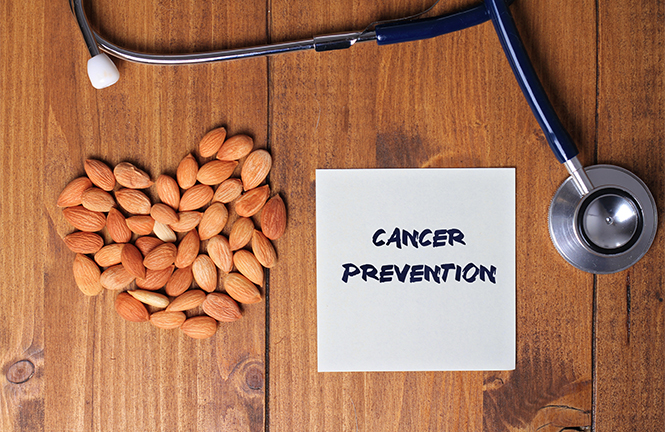Latest News
Research
Working to reduce breast cancer risk through a diet and exercise program packaged and delivered through a mammography screening clinic
Oct 22, 2017

The average woman’s risk of developing breast cancer in the U.S. is one in eight. Efforts to address the risk and detection of breast cancer have focused primarily on mammography screening, with less emphasis on the preventive role of achieving and maintaining a healthy body weight through physical activity and diet.
The World Cancer Research Fund estimates that about 20 percent of all cancers in the U.S. can be attributed to modifiable risk factors like diet and exercise that, if changed, can reduce cancer risk. Research from the American Cancer Society shows 150 minutes of moderate physical activity weekly can reduce breast cancer risk, with the most striking data showing a cancer risk reduction between 20 and 30 percent.
While physician recommendation for mammography screening is high, lifestyle counseling including diet and physical activity recommendations is less common. Reasons for this include lack of time, difficulty with reimbursement and lack of clinician skills for behavior change counseling. As a result, weight loss interventions delivered in the context of clinical care remain challenging.
VCU Massey Cancer Center researcher Maria Thomson, Ph.D., member of Massey’s Cancer Prevention and Control program and assistant professor in the Department of Health Behavior and Policy at the VCU School of Medicine, is tackling that challenge head-on with her pilot study, “Addressing modifiable breast cancer risk factors with Project CONECT [Connect Online to Engage Change Tool].”
“I’ve spent my training studying communication about cancer prevention,” says Thomson, a social and behavioral scientist. “Breast cancers are one of the cancers where it looks like lifestyle plays a role. Overweight and obesity seem to be associated with both incident and recurrent breast cancers, particularly among post-menopausal women.”
The objective of Project CONECT is to adapt and pilot test an existing behavioral weight loss intervention delivered in the context of mammography screening. One of the biggest problems with lifestyle intervention, says Thomson, is motivation. “We know mammography screening is something women do, but can we use the existing opportunity of screening to introduce and promote lifestyle change like physical activity or weight loss?”
Thomson reasons that women who engage in mammography screening are likely to be open to other cancer prevention behaviors like physical activity. “Can we take some of that motivation for getting an annual mammogram and blend it into another behavior?” she asks. Explicitly, if Project CONECT is offered to women — packaged and delivered through their mammography screening clinic — would women follow through?
Thomson’s pilot study, funded through VCU Massey Cancer Center, will include women ages 40-64 who had a recent mammogram at VCU Health. After they opt in, the women will be randomized into the 12-week pilot. Thirty women will participate in the CONECT diet and exercise program, which includes a combination of in-person and electronic activities.
At the end of the 12 weeks, Thomson will evaluate and interview the study participants: Did they finish the program? Did they lose weight? What did they think of the individual components?
If the program shows sufficient participant follow-through and resulting weight loss, Thomson envisions working towards making CONECT an available complement to the existing practice of mammography screening. “We’d like to see how we can integrate this into the clinic,” she says.
The study is currently enrolling participants. To enroll or learn more, please call 804-828-7995.
Re-purposed from an article by Carla J. Davis, University Relations.
Written by: University Relations
Related News
Research, Technology
Groundbreaking TACIT algorithm offers new promise in diagnosing, treating cancerJun 9, 2025

Get access to new, innovative care
Treatments in clinical trials may be more effective or have fewer side effects than the treatments that are currently available. With more than 200 studies for multiple types of cancers and cancer prevention, Massey supports a wide array of clinical trials.

Find a provider
Massey supports hundreds of top cancer specialists serving the needs of our patients. Massey’s medical team provides a wealth of expertise in cancer diagnosis, treatment, prevention and symptom management.
